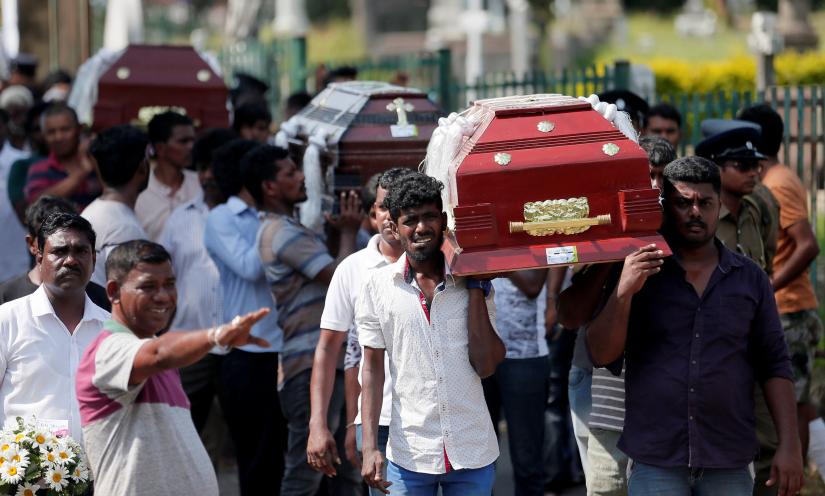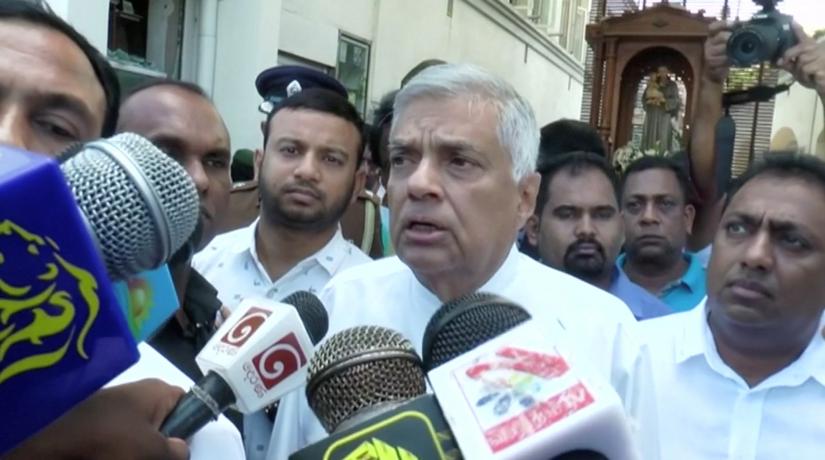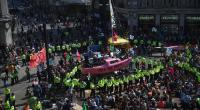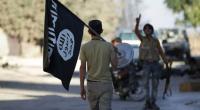 Political tension mounted in Sri Lanka on Wednesday over the handling of advance intelligence related to Easter Sunday's suicide bombings, with an ally of the prime minister charging that top officials deliberately withheld critical information.
Political tension mounted in Sri Lanka on Wednesday over the handling of advance intelligence related to Easter Sunday's suicide bombings, with an ally of the prime minister charging that top officials deliberately withheld critical information.
The attacks on churches and luxury hotels, which killed at least 359 people and wounded about 500, appear to have rekindled a feud between Prime Minister Ranil Wickremesinghe and President Maithripala Sirisena.
Critics said government infighting could undermine the authorities' response to the security crisis and the threat of Islamist extremism now facing an island state that had been relatively peaceful since a civil war ended a decade ago.
"How do you deal with this? The president and the prime minister are part of the same government, and they are blaming each other," said Keheliya Rambukwella, lawmaker and spokesman for former president Mahinda Rajapaksa's opposition party.
"You would normally expect the opposition to be playing the blame game. But we don't need to, they are busy attacking each other, we are in fact saying please get together and sort it out, so the country can unitedly face the challenge."
Sri Lankan intelligence officials were tipped off about an imminent attack by Islamist militants hours before the suicide bombings at three churches and four hotels, three sources with direct knowledge of the matter told Reuters this week.
An Indian government source said similar messages had been given to Sri Lankan intelligence agents on April 4 and April 20.
Islamic State claimed responsibility for the attacks on Tuesday.
 'FAILURES IN THE SYSTEM'
'FAILURES IN THE SYSTEM'
The leader of parliament, an ally of the prime minister, said on Wednesday that "some top intelligence officials hid the intelligence information purposefully".
"Information was there, but the top brass security officials did not take appropriate actions," Lakshman Kiriella, who is also minister of public enterprise, told parliament.
He said information about possible suicide attacks on churches, hotels and politicians was received from Indian intelligence on April 4 and a Security Council meeting was chaired by President Sirisena on April 7, but the information was not shared more widely.
"Somebody is controlling these top intelligence officials," the minister said. "The Security Council is doing politics. We need to investigate into this."
Sirisena has said his office never received the Indian report. Two sources close to the president said Sirisena had asked the country's police chief and defence secretary to resign following the attacks.
The president fired Wickremesinghe last October over political differences, only to reinstate him weeks later under pressure from the Supreme Court.
Opposing factions aligned to Wickremesinghe and Sirisena have often refuse to communicate with each other and blame any setbacks on their opponents, government sources say.
Asked if the rifts within the government had hampered the response to the intelligence, the U.S. ambassador to Colombo, Alaina Teplitz, told reporters on Wednesday: "Clearly there were failures in the system."


